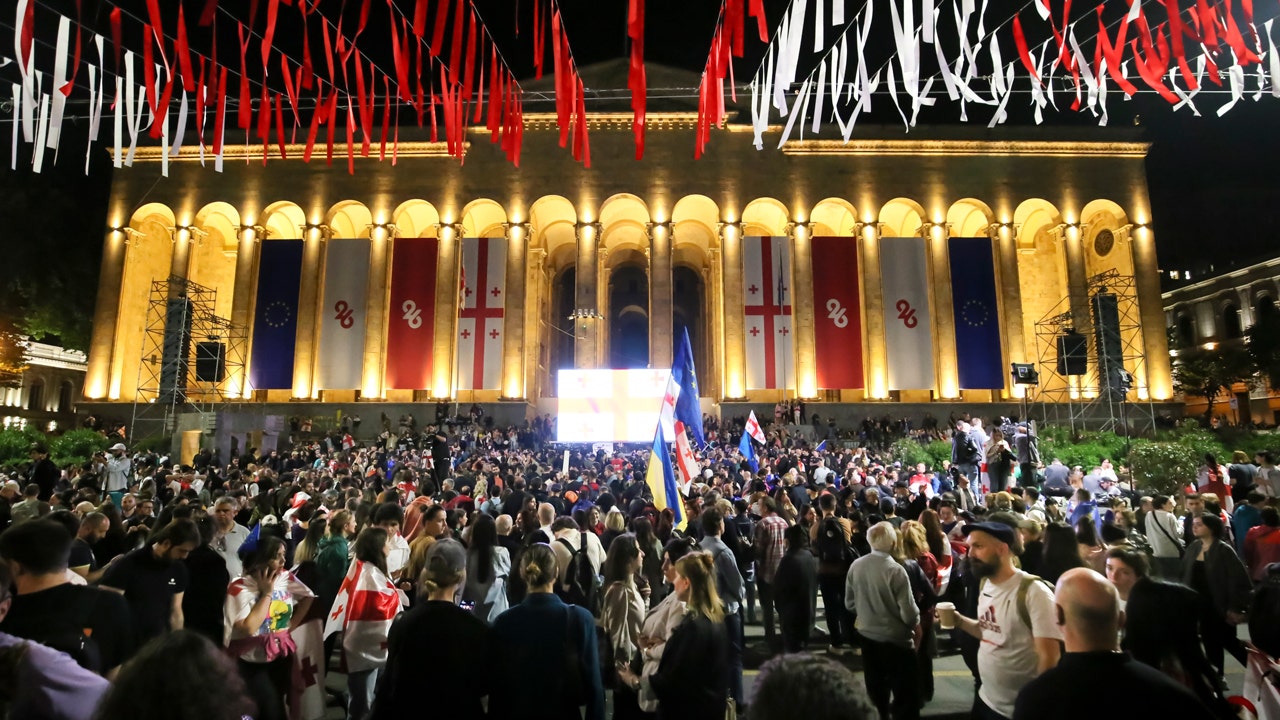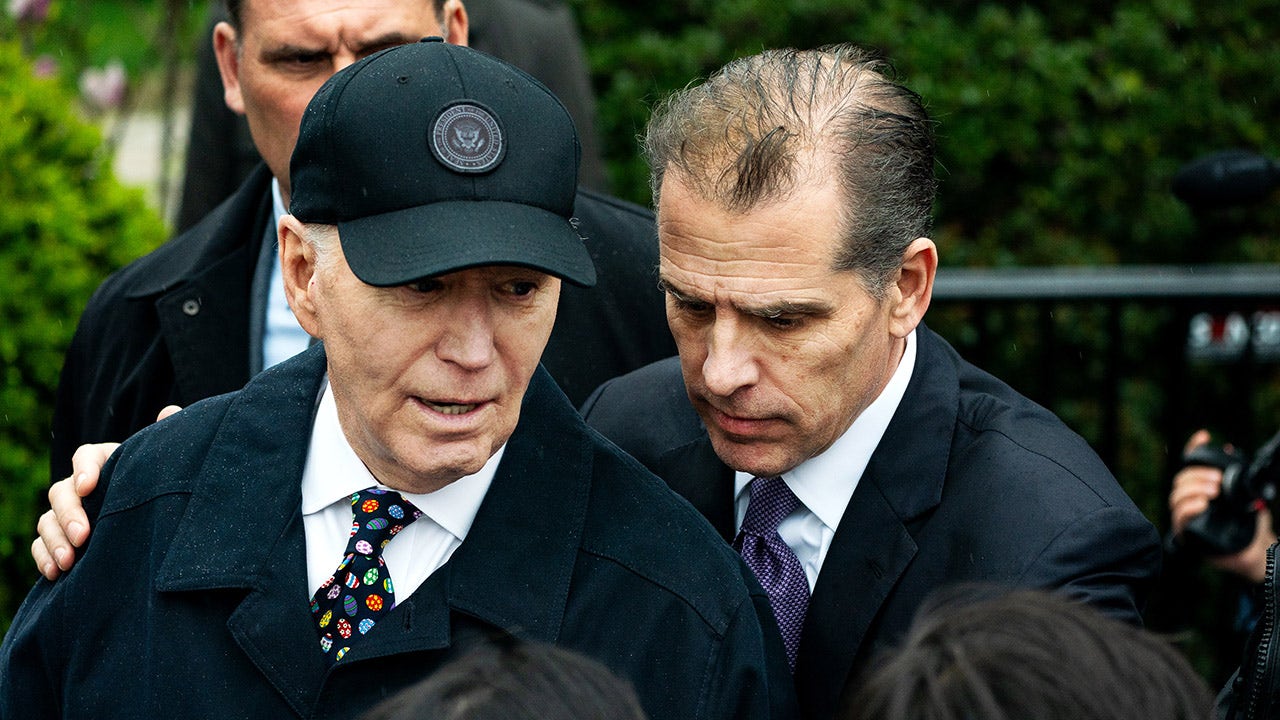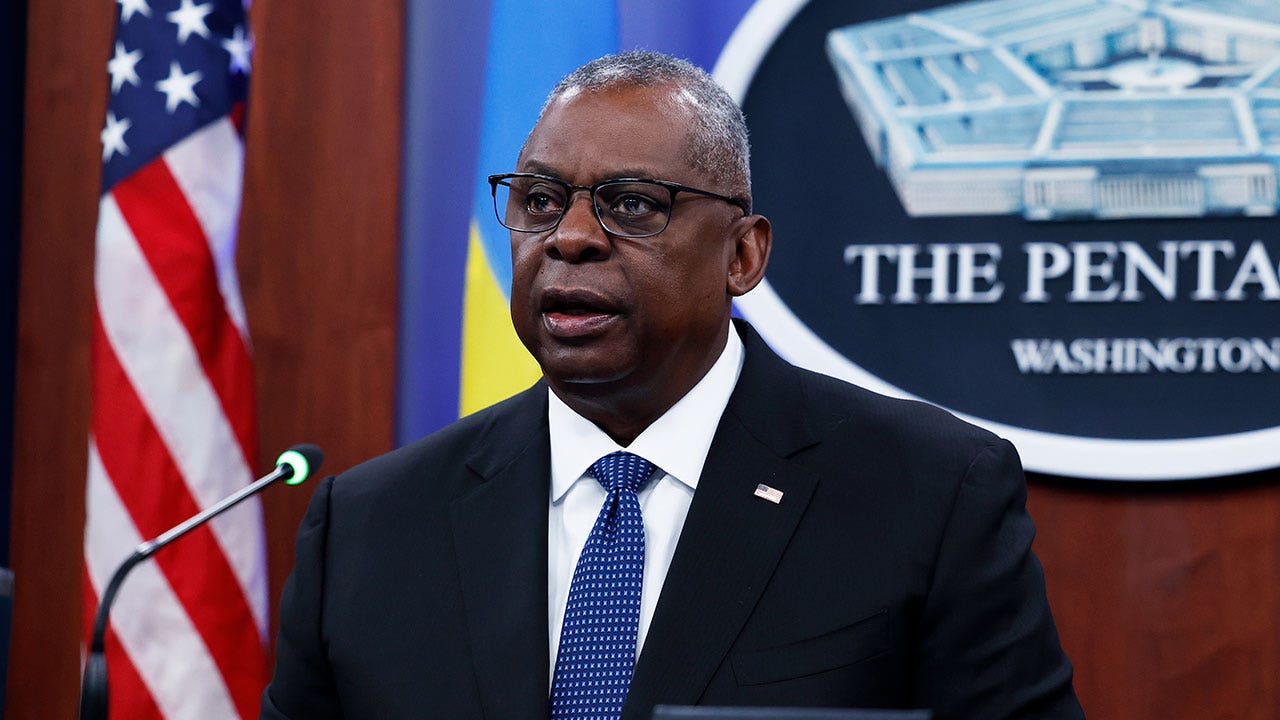Nine men and women went on trial in Frankfurt on Tuesday accused of plotting to overthrow the German government, in a sensational case that has revealed how deeply QAnon conspiracy theories have penetrated the world of the German far-right.
The suspects, who were arrested in December 2022, stand accused of belonging to, or supporting, a terrorist organisation that planned to attack the German parliament, detain MPs and do away with the country’s postwar political order. They face 10 to 15 years in prison if found guilty.
Prosecutors have identified the ringleaders as Heinrich XIII Prinz Reuss, a real estate broker and scion of an aristocratic family, and Rüdiger von Pescatore, a former lieutenant colonel and paratrooper commander. The group also includes a former MP from the far-right Alternative for Germany party, ex-judge Birgit Malsack-Winkemann.
Prosecutor Tobias Engelstetter spent most of the first day of the trial reading out the 617-page indictment, detailing a conspiracy that seemed so outlandish at times it drew gasps of astonishment from the public gallery.
Prosecutors said the conspirators shared a “profound rejection” of the country’s liberal democratic system, believed deeply in the QAnon conspiracy and shared the views of the “Reichsbürger” movement, which does not recognise Germany’s postwar order.
Engelstetter presented the plotters’ worldview as being built around the idea that Germany is controlled by members of a “deep state”, which runs a series of “underground military bases”. Here children are abused, killed and their bodies used to produce a special rejuvenating elixir.
According to this theory, the deep state is opposed by a secret association known as the Alliance, which brings together the armies, governments and intelligence services of various states, including the US and Russia, that have promised to liberate Germany.
The plotters, so prosecutors said, expected the Alliance to give a signal to presage “Day X”, which would in turn act as the trigger for the Reuss group to launch their coup. Some of them believed the death of Queen Elizabeth in the UK in September 2022 was just such a signal.
They had allegedly formed a council and a military arm ready to take power once the current regime was removed from power, and had built up a €500,000 war chest and a huge firearms arsenal.
The suspects were aware, prosecutors said, that their attempt to seize power would “involve killing people”, and had drawn up lists of “enemies” that would be arrested, and likely killed, after the coup.
The plotters had, according to prosecutors, already decided on roles in the government they planned to set up after the power grab, with Prinz Reuss tapped to serve as head of state and Malsack-Winkemann to run the justice ministry.
One of the more bizarre parts of the indictment concerned the relationship of the alleged plotters with two brothers in Switzerland. Identified as Sandro and Claudio R, the siblings were paid huge sums of money to provide the group with illegal weapons, prosecutors said. The brothers were also supposed to help the conspirators find the entrance to the “deep underground military bases”, so the children allegedly held there could be freed. They did neither.
The case, which is being heard under tight security in an annex of Frankfurt’s higher regional court, has shone a spotlight on the Reichsbürger, an extremist movement whose members believe the German Reich of 1871-1945 still exists. They do not recognise the laws and institutions of postwar Germany, issue their own passports and stamps and refuse to pay fines issued by local authorities.
Long dismissed by ordinary Germans as a bunch of harmless eccentrics, the Reichsbürger is estimated to have about 23,000 members and, according to Germany’s domestic intelligence agency, exhibits a “high affinity” for weapons.
In a sign of the size and complexity of the case, different trials are being held in Stuttgart, Frankfurt and Munich.
A trial against the alleged military wing of the Reuss group started in Stuttgart in late April and includes several former senior officers in the German armed forces. One of the suspects on trial in Stuttgart is accused of having shot and wounded police carrying out a search of his apartment in March 2023 and faces an additional charge of attempted murder.
Proceedings against less prominent alleged members will start in Munich on June 18.



/cdn.vox-cdn.com/uploads/chorus_asset/file/23951394/STK088_VRG_Illo_N_Barclay_1_spotify.jpg)
























